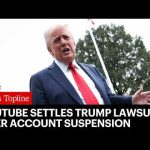A British blogger was recently arrested after sharing an anti-Hamas meme on social media, a shocking example of law enforcement reaching into ordinary political expression and punishing crude criticism. Authorities detained him on suspicion of stirring up racial hatred and then released him under investigation, leaving a chilling cloud over anyone who posts a blunt condemnation of a proscribed terrorist group. This incident should set off alarm bells for defenders of free expression everywhere who believe governments must not police taste or political opinion.
According to reports, the meme used profanity and included offensive language about Palestine and Islam, but the core gripe was simple: the post said what many feel about a group responsible for mass murder and hostage-taking. The blogger has pointed out the absurdity of being questioned for criticizing a proscribed terrorist organization while questioning whether the arresting officers even understood who Hamas is. When the machinery of the state treats political cartoons and memes as criminal evidence, we are sliding toward a society where speech is judged by mood and political convenience rather than principle.
This episode sits alongside other troubling UK actions that show a legal system increasingly willing to intervene in social media disputes, whether that involves prosecutions for support of terrorist groups or interrogations over offensive posts. British authorities have prosecuted officers and civilians for social media content related to Hamas and other proscribed organizations, undermining public confidence in consistent, principled enforcement. The selective and unpredictable application of these laws breeds resentment and fuels the very divisions officials claim they wish to heal.
We are witnessing a pattern: mass arrests around nationalist and protest activity, aggressive policing of online speech, and a legal environment that can be weaponized against those who step outside narrowly accepted narratives. When policing priorities shift from clear criminal conduct to monitoring controversial opinions, the institutions meant to protect our liberties become the instruments of intimidation. Citizens who once trusted law enforcement to keep streets safe are now rightly asking whether their own words will land them in a cell.
Conservatives ought to be outspoken about this because the principle at stake is fundamental — free speech is not a bonus we grant for polite discourse, it is the oxygen of a free society. The temptation of authorities to silence offense in the name of harmony is dangerous, and it will be used against voices on all sides over time. Those who care about liberty must insist on limits to state power, clearer laws that protect genuine safety, and a restored culture that tolerates robust, even rough, political debate.
If we permit the criminalization of memes and tweets, we will have exchanged public argument for administrative censorship and private fear. Law enforcement should concentrate on real threats: violent actors, organized terror networks, and genuine criminal conduct — not policing the internet for taste. Citizens and lawmakers alike must demand that liberty be defended, not narrowed, and that free nations remain places where political speech, however offensive to some, is not a crime.




